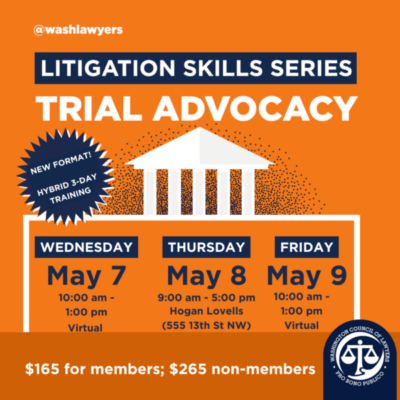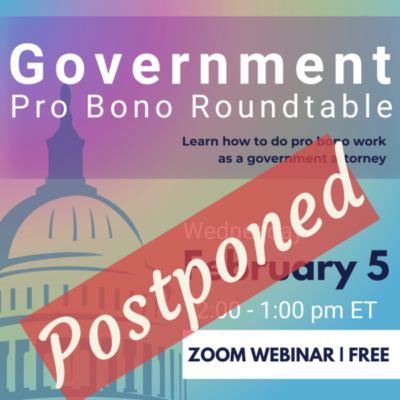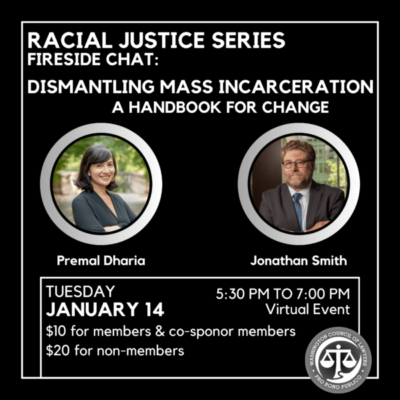Litigation Skills Series: Trial Advocacy
SOLD OUT! WAITLIST AVAILABLE Join us for three educational days of Trial Advocacy from Wednesday, May 7 to Friday, May 9. We are using a new hybrid format! The first and third days will be virtual, the second day will be fully in person. View the 2025 Litigation Skills Series Trial Advocacy Schedule. If you have any questions about the schedule, please email Chris Marin at cmarin@wclawyers.org. We will focus on the four fundamental trial skills: Opening Statements, Direct Examinations, Cross-Examinations, and Closing Arguments. Each topic will begin with a lecture by an expert trainer and a demonstration by skilled litigators showing how to put the lesson into practice. Then, we will move to small group breakout rooms where each attendee will get up and practice the skill of the day. Breakout room facilitators will offer individualized, constructive feedback to each participant. Attendees should plan to spend some time between each session to prepare for the on-your-feet breakout sessions. We are excited to try the new hybrid format. We are building on past feedback to make sure you can get the most from the training while ensuring you can still manage your busy schedule. Our fact pattern features a Landlord and Tenant case, but you need not know anything about substantive law in this area to benefit from the training. For Washington Council of Lawyers members, this comprehensive Trial Advocacy training costs just $165. For non-members, the cost is $265. (Join Washington Council of Lawyers to take advantage of the discounted member rates.) Scholarships are available thanks to the generosity of the D.C. Bar Foundation. To apply for a scholarship, please complete this online scholarship form. CLE credits are pending for this training for CA, NY, NJ. This session always sells out. Save your seat today! Registration closes Friday, April 25 at 5:00 pm ET.









